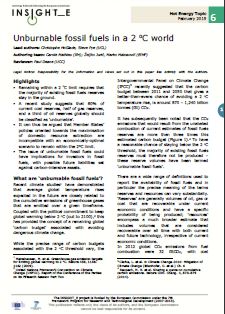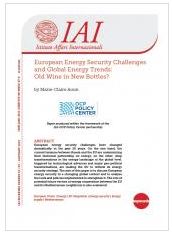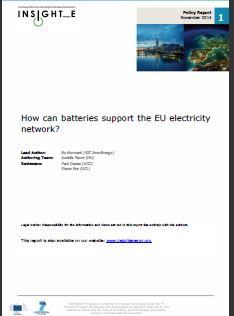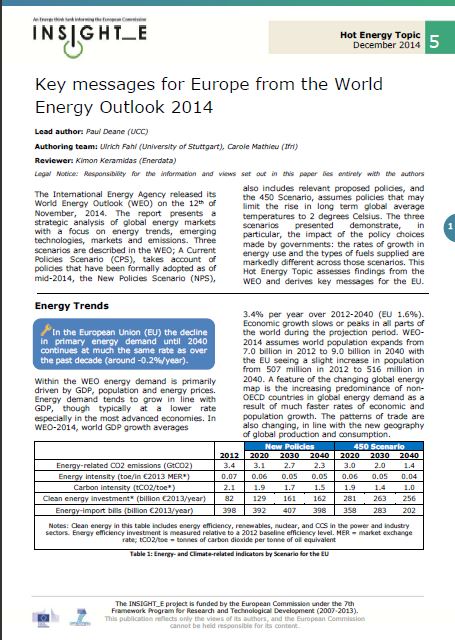Energy - Climate
In the face of the climate emergency and geopolitical confrontations, how can we reconcile security of supply, competitiveness, accessibility, decarbonization and acceptability? What policies are needed?
Related Subjects


Unburnable fossil fuels in a 2 °C world
Lead Authors: Christophe McGlade, Steve Pye (UCL)
Authoring Team: Carole Mathieu (Ifri); Željko Jurić, Marko Matosović (EIHP)
Reviewer: Paul Deane (UCC)
The US Shale Oil Revolution: The Test of the Business Model is Underway
Since 2010, the United States has been undergoing a second shale revolution with the very rapid development of Light Tight Oil (LTO) or shale oil, following the revolution in shale gas. This development has allowed the production of oil and liquids to increase, so that the US is the world’s largest producer today, ahead of Saudi Arabia and Russia.


European Energy Security Challenges and Global Energy Trends: Old Wine in New Bottles?
Paper produced within the framework of the IAI-OCP Policy Center partnership and presented at the international seminar "Morocco's Role in Fostering Euro-Mediterranean Energy Cooperation" organised in Rabat on 26 September 2014.

How can Batteries support the EU Electricity Network?
Policy Report, Publication Insight_E
Lead Author: Bo Normark (KIC InnoEnergy), co-author: Aurélie Faure-Schuyer (Ifri),
Reviewers: Paul Deane (UCL) and Steve Pye (UCL)
From 2020 to 2030, from Copenhagen to Paris: a mindset change for the European Climate Policy?
The European Councils of March 2007 and October 2014 have defined the major guidelines of the European climate policy for the 2010-2020 and 2020-2030 decades. These commitments have then been used as negotiation roadmaps for two major conferences on climate held under the United-Nations umbrella, in Copenhagen in 2009 and in Paris in December 2015. In both cases, the aim was, and still is, to reach a global agreement to take over the Kyoto Protocol. The first one was a failure for the European diplomacy and all hopes are now placed in the second, which may well be the last chance for the international climate talks.

Key messages for Europe from the World Energy Outlook 2014
Hot Energy Topic n° 5, Insight_E publication
Lead Author: Paul Deane (UCC)
Authoring Team: Ulrich Fahl (University of Stuttgart), Carole Mathieu (Ifri)
Reviewers: Kimon Keramidas (Enerdata)

Oil Shock Streaks Across Globe form Moscow to Teheran to Caracas. Ready for $40?
Oil’s decline is proving to be the worst since the collapse of the financial system in 2008 and threatening to have the same global impact of falling prices three decades ago that led to the Mexican debt crisis and the end of the Soviet Union.
Gas Strategy of China: Developing competion between national production and imports
The Chinese gas market is facing four key challenges and the government is elaborating responses which will have implications for the Chinese and world energy markets:
Support independent French research
Ifri, a foundation recognized as being of public utility, relies largely on private donors – companies and individuals – to guarantee its sustainability and intellectual independence. Through their funding, donors help maintain the Institute's position among the world's leading think tanks. By benefiting from an internationally recognized network and expertise, donors refine their understanding of geopolitical risk and its consequences on global politics and the economy. In 2024, Ifri will support more than 70 French and foreign companies and organizations.







